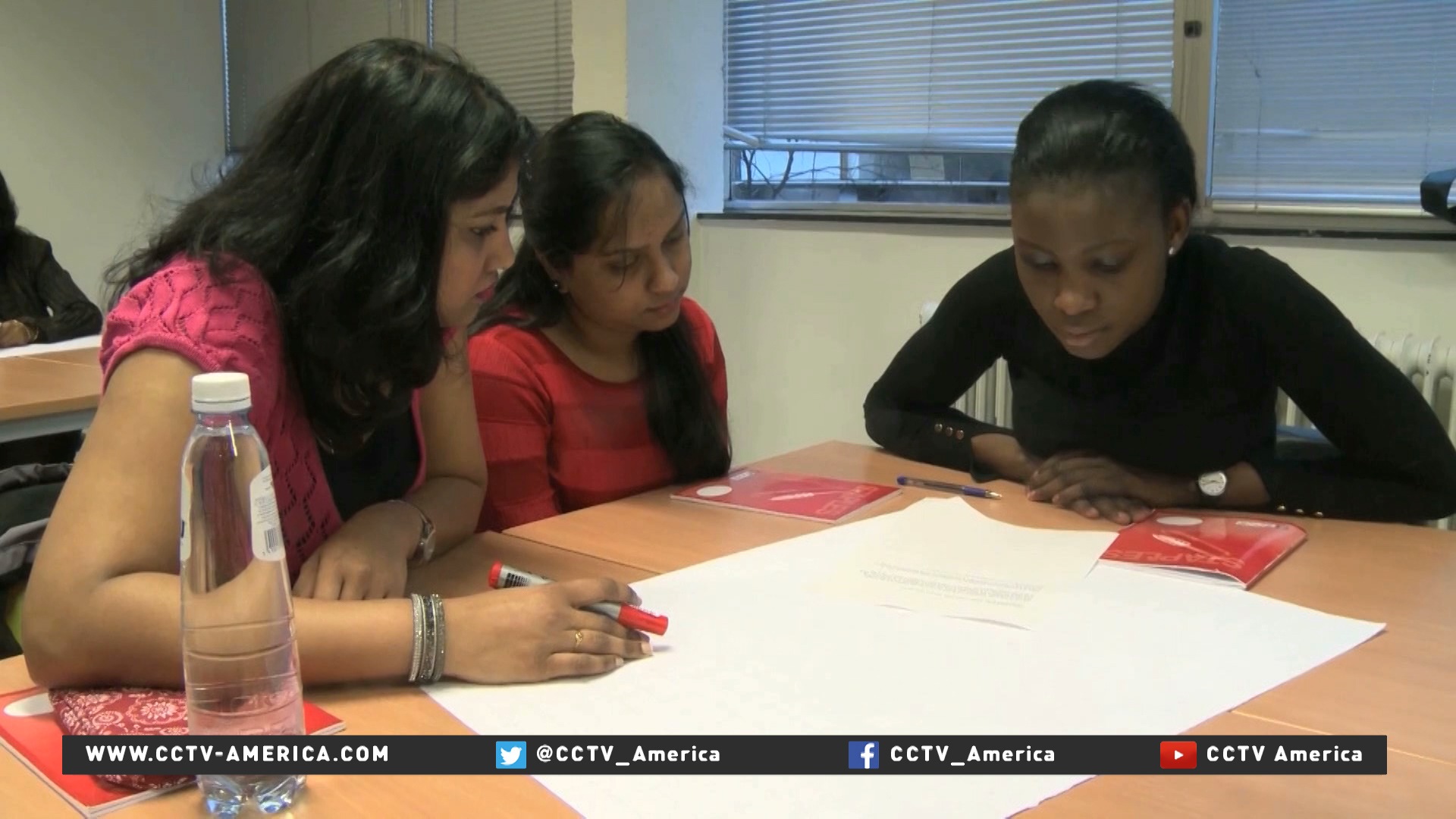For the first time, the UN has airlifted refugees from Libya to Europe. A military cargo plane delivered more than a hundred to Italy.
Meanwhile in Greece, health officials are trying to figure out what to do about a growing number of pregnant refugees. Despite agreements to reduce the number of people arriving, many camps are overcrowded.
CGTN’s Filio Kontrafouri reports from Lesvos.
Behind the barbed wire, about 6,000 asylum seekers are crammed into a camp built for 2,000. The number has fallen slightly in recent days. The government is rushing to transfer more families, pregnant women and children out of Moria as winter sets in.
But 22-year-old Palwasha is not among them. She is from Afghanistan, eight months pregnant and has been living inside the camp for almost two and a half months.
“The first night was so bad I cried. For two nights I was outside crying, because of my situation,” she said. “I never think that in Europe I will have this life.”
We realized what Palwasha meant when we got inside the camp with a hidden camera.
Each person is entitled to one bottle of drinking water per day. The stench of urine and rotten garbage is almost everywhere, and the cold weather makes everyone more susceptible to getting sick.
We found Palwasha in her tent, which she rarely leaves.
Violent incidents break out almost daily, especially at night. Complicating the problem is pregnant women like Palwasha needing to use the bathroom more often compared to everyone else.
“At night, in the morning if I wake up at 3 o’ clock. I’m waiting that the sun shines. After that I will go to the toilet. The situation is no good and because of that I can’t go alone.
She said that when her husband is sleeping and she doesn’t want to wake him, she will wait until morning. This often happens every night.
“I say that when you have a state of emergency, and human lives are in danger, you don’t hide behind a signature,” Lesvos Mayor Spyros Galinos said. “You take the measures that must be taken, save the people.”
The number of pregnant migrants and refugees arriving in Lesvos has surged dramatically. According to data provided to us by the island’s hospital, their numbers since September have more than tripled.
Doctors say that babies born to refugee mothers in Lesvos now make up 40 percent of all the babies born at the island’s hospital.
“We will offer all this with all our heart, but we shouldn’t forget that tiredness adds up,” Pangiotis Provetzas, the head of the obstetrics department, said. “We must also cover on-call days and emergency duty. We are only four doctors.”
But they won’t have to deliver Palwasha’s baby. Just days before Christmas, she and her husband unexpectedly received a most precious gift: A one-way ferry ticket to Athens, from where they can finally start building the new life they had hoped to find in Europe.
Millions of people will mark the end of the year as refugees or migrants. The issue of immigration played a role in many elections this year, so to find out what we can expect for 2018, CGTN’s Susan Roberts spoke to John Sitilides, a consultant to the U.S. Department of State. He began with an update on the situation in Syria.
 CGTN America
CGTN America

